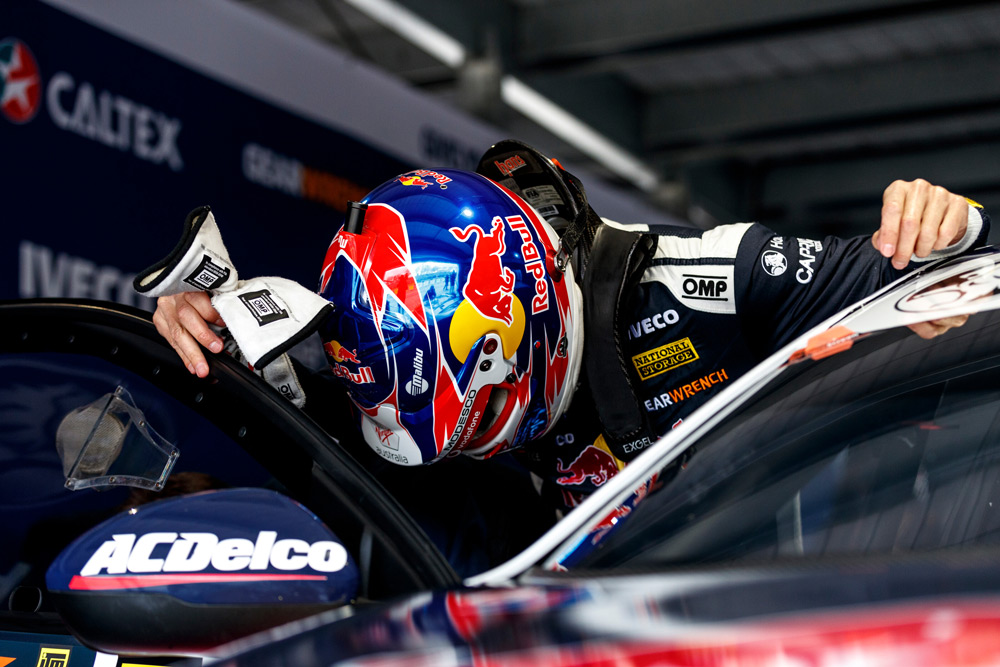IN Australia the sporting media is dominated by three things.
If you’re in the South it’s Australian Rules Football and Cricket and if you’re in the North it’s Rugby League and Cricket.
If you pick up a newspaper – yes, they still make them – on any day of the week there’s pages on pages of coverage on the tribunal, players recovering from injury, those suspended for testing positive to illicit substances and even pages of the players mucking up at the end of their season.
Relative to the other events around the sport, there’s actually very little coverage about the games themselves.
On a Monday you might get a full page dedicated to the game of the week with scores and key statistics, but for the remainder it’s just pages and pages of over-analysis and reporting about all of the additional stuff that goes on about the game in question.
Such was the case when the Supercars headed across the ditch to Pukekohe last weekend and all hell broke loose.
Such has been the fallout from the events of Sunday’s controversial race that the actual 70-laps, which included some genuinely entertaining motor racing, have barely rated a mention since.
And if Scott McLaughlin hadn’t have won, and thus didn’t set a new record for most wins in a single season, I’d wager that the race result may have been completely ignored but for all of the noise around the events that all occurred before the 20th lap.
It’s like the footy coverage; the game barely exists while all the noise is around the extraneous matter that evolves around it.
This brings up a frustration of mine about motorsport.
Racing teams, the drivers and the categories themselves are always the first to complain when they don’t get media coverage.
And yet when the opportunity presents and thousands of words, images, video still and analysis are being produced they suddenly get all shy and close up shop because ‘it doesn’t look good’.
I’m afraid, that’s the way it goes.
The AFL or NRL may not like the constant news cycle about injuries, the judiciary, complaints about umpires or players playing up but it is just an acknowledged part of the news cycle.
Well, last weekend Supercars had people playing up, complaints about umpires and a close focus on the judiciary.
And when you take into account the heaving crowd of 42,000 that lined Pukekohe Park at the weekend the atmosphere felt like a football game as well – Scott McLaughlin the key forward who kicked the lucky goal early in the match to take all the momentum.
Jamie Whincup was the guy who tripped on his own shoelaces, while those in race control were the men with the whistle to whom the fans need very little motivation to crate angst about.

All of us that cover the series are guilty of diving into the material and analysing it to the n-th degree because it’s what people want to read and react to. It’s clearly one of the biggest stories of the year. And in a month, very few people will care because we’ll have undoubtedly just seen another thrilling conclusion to a Bathurst enduro that leaves us all breathless and we all move on with life.
That’s the other thing the media are good at: redemption stories.
Take the Essendon Football Club, for example. Less than five years ago the club was on the ropes with the shock news that they had engaged in a sustained and planned doping program that remains one of the biggest sporting scandals in the history of the competition.
This year they returned to the finals for the first time since ‘the crisis’, and while it was still referenced in the media the angle was more on their chances of progressing beyond week one (limited, as it turned out) and who’d be their coach for next year.
So as much angst as the Pukekohe debacle created, it will blow over and we’ll all return to complaining about how the sport gets bugger all media coverage.. at least until the next outrage comes along.



Comments